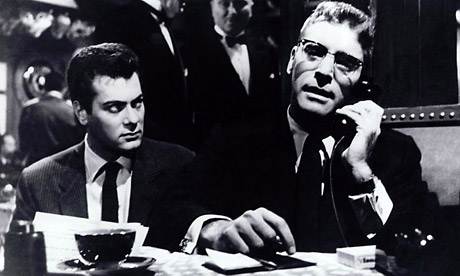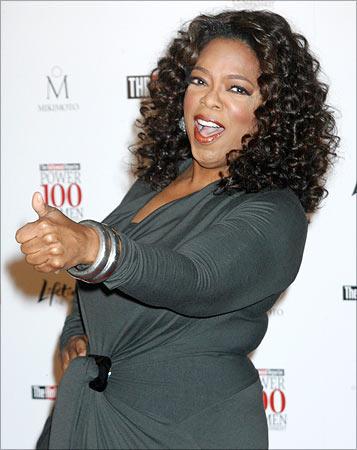The Dalai Lama's famous 'middle path' is the biggest cop-out. It works only at the level of Hollywood art-house cinema and to make sure that Richard Gere remains the certified American gigolo of the movement.
India is trapped. “This will be a ‘Tom and Jerry’ show. The cat may have powerful fangs but the mouse will ultimately win,” said Tibetan leader Tensin Tsunde.
- - -
The Tibetan Refugee Camp in Delhi was quiet. The stalls where they sold carvings, trinkets, and shawls and woolens in winter, were empty. They stood like cages, iron meshes separating one from the other.
Some monks were sitting on the wooden platforms. Young people in trendy clothes were walking about aimlessly. I spotted two young men in their late teens. For a month in March all shops were closed in protest. Wangchuk stayed here. The lodgings are very basic, but certainly better constructed than the hovels of the poor. Both these boys were attending college. One lived here; the other in a mainstream locality. The latter was far more forthcoming. What was Wangchuk afraid of?
“Not afraid. I just don’t want too much prominence. We are going through conflict.”
“With the Chinese?”
“Yes, but also amongst ourselves.”
At the centre of the discord is the Dalai Lama. At the time I was there last month he was sitting in an air-conditioned suite of a five-star hotel. The protesters had been shouting slogans. These two teenagers are tired. “For four days we sat there, it won’t achieve anything. People are going on and on about boycotting the Olympics. We don’t care about all that. We want complete independence.”
The Dalai Lama’s famous ‘middle path’ is the biggest cop-out.
It works only at the level of Hollywood art-house cinema and to make sure that Richard Gere remains the certified American gigolo of the movement. The Dalai Lama says that the recent aggression and riots that took place did not involve Tibetan monks at all. “They (Chinese soldiers) dressed like monks. So, for a lay person, they will look like monks. But the swords they had were not Tibetan, they were Chinese swords.”
Yet, he does not want a separate state but autonomy within China. It is time for him to visit his people as a political leader and drop the His Holiness garb. But that won’t sell. He has got a nice little resort to himself in India, a horde of celebrity endorsements and a typical Occidental support system. Steve Tsang, a China politics expert at Oxford University rightly asked, “How many people watching these images in the West will buy China's story? Instead, what you see are these heroic monks who are risking a lot for their cause. That is something your average Westerner is very sympathetic with.”
The average Westerner makes Chicken Soup for the Soul a bestseller. Monks are cute, and the Dalai Lama really enchants everyone. An Indian editor just could not rein in his excitement when the Tibetan leader slapped his wrist after every joke. Here is one such ‘joke’: “The Chinese accuse me of orchestrating the protests. I call for a thorough investigation. Let them investigate if I am responsible. Let them investigate any and everything—except my lungs, my stomach, my urine and my stool.”
I had once attended one of his lectures at an auditorium in Mumbai. Standing in the queue to enter the hall was quite a lesson. There were foreigners with backpacks, the usual activist brigade, a few chic ladies in summer wear, some were into the holistic healing fad, and there were the Tibetans in their orange-maroon robes.
When the gates opened there was a predictable rush. You could have been to a rock concert, but there was a silence punctuated by laughter that was echoing the Dalai Lama’s giggles. He laughed because he goofed up on his English and everyone laughed because he did. Charming, but that’s about it. He said India was their guru; he was only stating the obvious. He was barely audible let alone intelligible.
Besides, when the West is busy bashing up ‘Islamists’ for making a hue and cry about faith, why is their poster boy publicly airing his religious views?
He vacillates between international intervention and then insisting that “the real solution to the Tibet issue can only be found between the Han Chinese and the Tibetans and no one else”. Almost immediately he avers, “I appeal to the world to save the Tibetan nation, which has a unique cultural heritage and is facing extinction as a result of the cultural genocide taking place in Tibet.”
In one of those supremely confusing moments, he has said that culturally Tibetans were closer to India and politically to China.
To start with, the problem is political. Tibet was established over 2100 years ago by Raja Nathi Chenpo, the first king. Around the middle of the 20th century, October 1949 to be precise, Chinese aggression began. With the advent of Communism, the attempts became bolder, resulting in forcible entry into Tibet, the butchering and massacre of 1959 which finally made the Dalai Lama and millions of others seek refuge in India.
Very soon the refugees realised they shared many similarities with the people of the Himalayan regions. What the Indian government does not realise is that joining forces with Tibet is detrimental to India because China has laid claims to Arunachal Pradesh, did not recognize Sikkim as a part of India and has supported many separatist movements in the North East and continues to occupy Aksai Chin in Ladakh.
Some of us who are considered ‘concerned citizens’ got an invitation to join in the parallel torch relay two days before the Olympics torch arrived; it was sent by some Indian Opposition leaders. That we are still struggling with our own separatist issues does not seem to drive home a discordant note. Also, since the Tibetans and the Dalai Lama have been crying themselves hoarse that they do not have a problem with China hosting the Olympics, why is India falling into the rat-trap?
People like Wangchuk have begun to question the concept of the very culture they are fighting to save. “We are not blaming the older generation but how long can we wait? We believe in democracy that is the reason we quietly protest. It is unfortunately mistaken for being soft. So far we have not thought of arming ourselves because that would not be good for us either. Yet when people keep telling us that we are Buddhist and must therefore follow the path of peaceful appeals, we find it a little unnerving. Recent experience has shown us quite clearly that the sound of bombs resonates very loudly but not our voices.”
An elderly administrator, Teng Pasang, is worried about this call for complete independence. “That is why the Chinese should speak to the Dalai Lama. After he is gone it will be difficult. If the Tibetans want they can become terrorists overnight. They could have become like Kashmir.”
Did it not strike him as a bit unusual that for a people who live in refugee camps they have given up their means of livelihood for a month? “This is a small price to pay for the sacrifice of the Tibetans. Besides, most have made enough money and saved up.”
He is happy with how the international community is responding. “It is good, UK, France, America, all coming and supporting.”
They have never shown such support for Kashmir, Afghanistan or Iraq, I tell him. “See, I told you Tibetans are non-violent. They are not terrorists.”
The Dalai Lama’s own position regarding terrorism is rather interesting. He had told the Daily Telegraph some years ago that terrorists must be treated humanely or terrorism will spread, “If there is one Bin Laden killed today, soon there will be 10 Bin Ladens…The new terrorism has been brewing for many years. Much of it is caused by jealousy and frustration at the West because it looks so highly developed and successful on television.”
Clearly he watches a lot of television. Perhaps he is unaware that it was the West that made the Gulf war into the first reality soap opera. It is rather surprising that for someone who fled because of atrocities he does not understand the depth of dissent. Osama bin Laden was a highly successful ‘Harry’, much admired in the teakwood-paneled clubs of London. No terrorist movement is even remotely trying to ape the West or showing any evidence of materialistic aspirations.
Today, the walls at the camp are plastered more with announcements of music programmes rather than political slogans. What do they want? Their voices are asking to support the proposal to demilitarize and denuclearize Tibet and put a stop to Chinese aggression. They want India to raise the issue of Tibet’s independence. And finally they cannot see why His Holiness cannot be accorded the status of Head of State-in-exile. That will be a truly political statement.
As Wangchuk says, “We will not compromise.”
How long are they willing to wait? “Till the end, till we get what is our right. We have seen many difficulties in the past, so it is time for looking towards a good future.”
I am given a “Free Tibet” badge with some diffidence. I put it away in my bag. One of these should reach the Dalai Lama.














